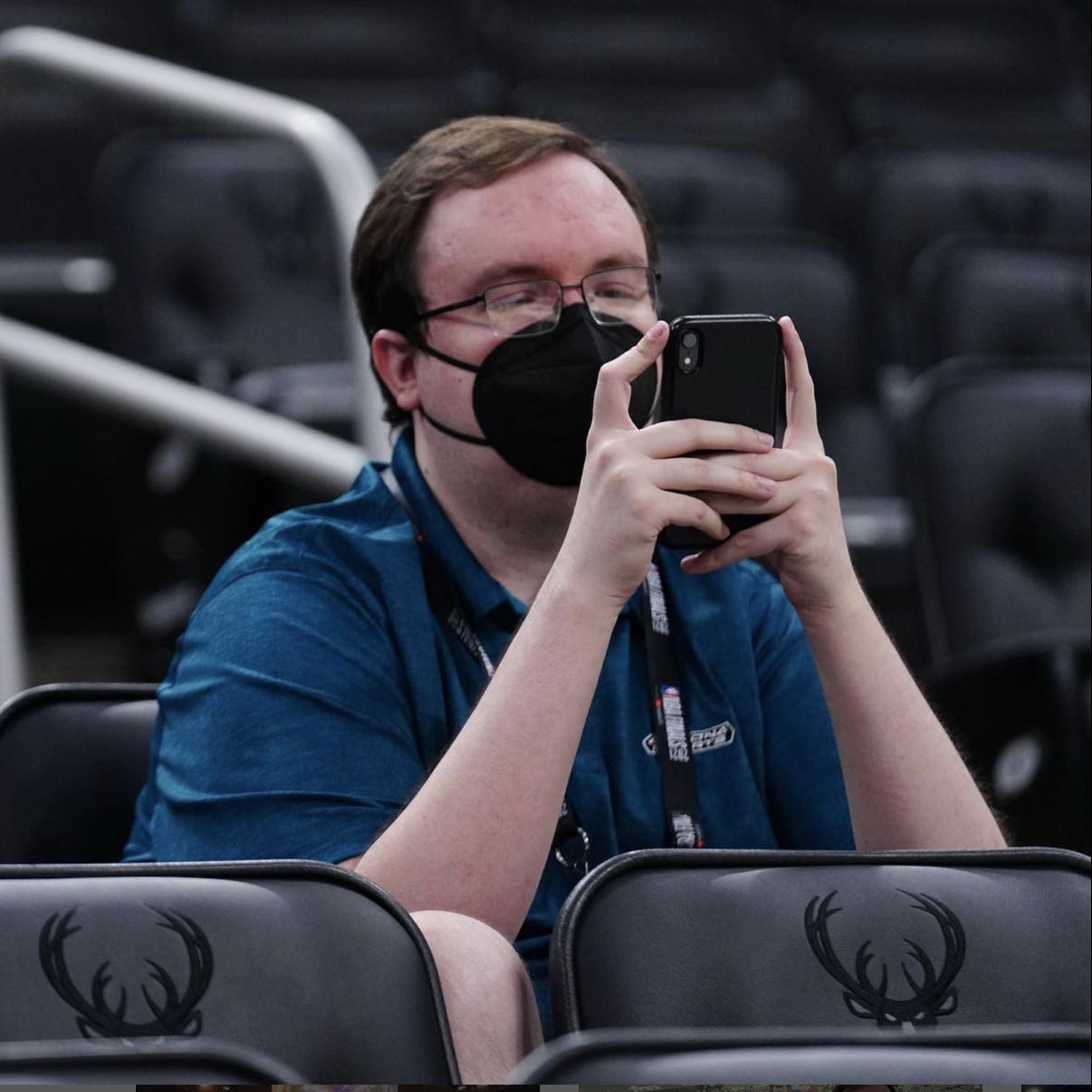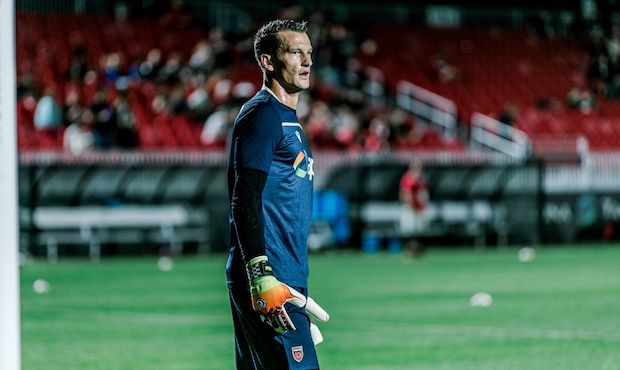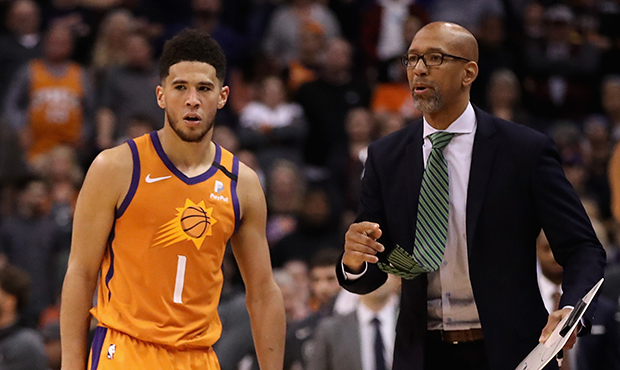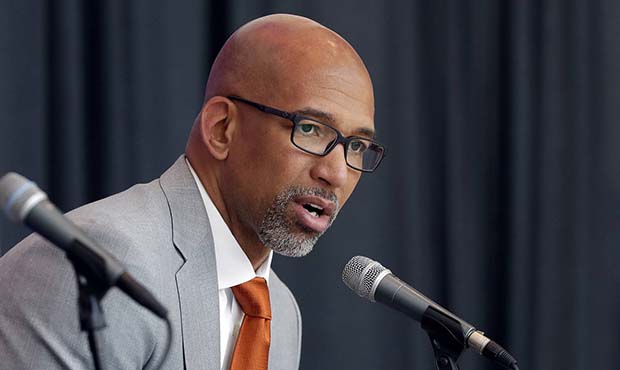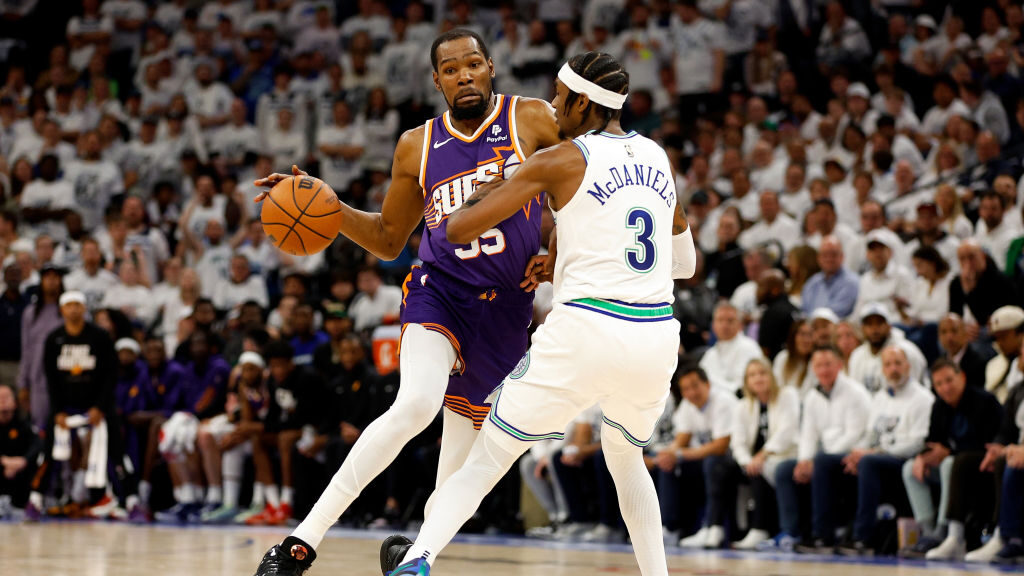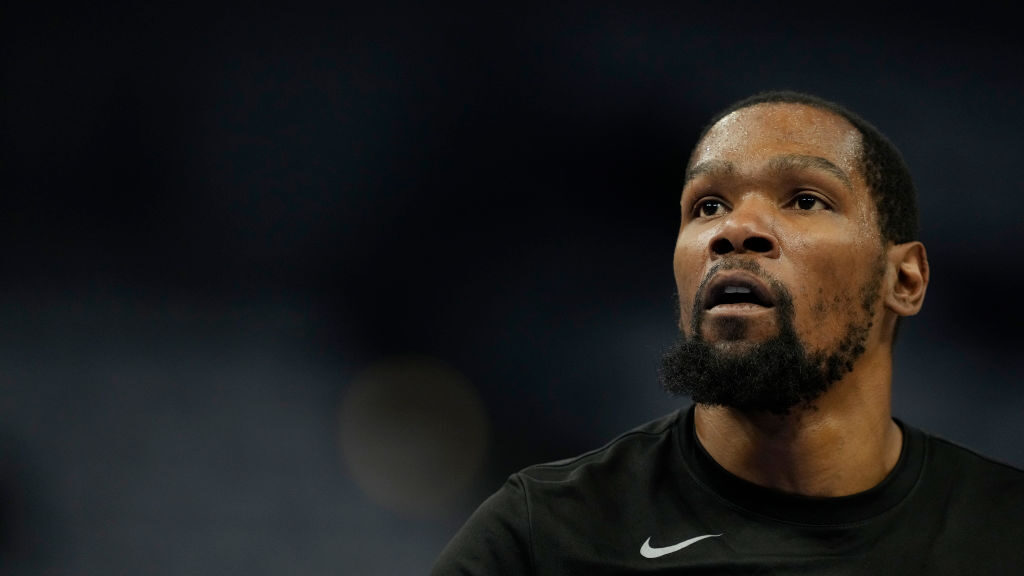Suns’ Baynes encourages listening, changing for better with open letter
Jun 4, 2020, 2:15 PM

Aron Baynes #46 of the Phoenix Suns points during the second half of the NBA game against the Philadelphia 76ers at Talking Stick Resort Arena on November 04, 2019 in Phoenix, Arizona. The Suns defeated the 76ers 114-109. (Photo by Christian Petersen/Getty Images)
(Photo by Christian Petersen/Getty Images)
Phoenix Suns center Aron Baynes is not one to say much. The invitation to be given more attention is not something he welcomes with open arms.
He is one to speak out when he feels it’s necessary, though, and he got to that point this week.
With the hashtag #BlackOutTuesday trending this Tuesday, millions posted black squares on Twitter and Instagram to show support for the black community and the fight against police brutality and racism.
But in an observation made by several on the matter, these posts were mostly just of the hashtag or nothing at all beyond the picture. There was no voice behind it, serving more as an awareness tool than anything with a real message.
That’s where Baynes wanted to step in and provide that message.
“It’s an issue close to my heart but I’ve never been one to try and speak up about anything in particular and try and pick sides or take a stance,” he said on a call with media Thursday. “But Monday night I started seeing black squares pop up. Tuesday morning, I woke up and it was filling the feed with black squares. To me, as much as I understand that people are trying to bring light to the situation, it silenced it for me.
“It wasn’t enough. There weren’t enough words being spoken. There wasn’t enough being said about it. It was taking away from the issue.”
So Baynes, a white man, released an open letter on his social medias Wednesday evening, opening up on his personal experiences of not being as aware as he felt he should have been on the issues at hand.
When he was 16 years old and started playing basketball, Baynes’ exposure to a multi-cultural setting allowed him to better see the struggles of black people across the world, something that wasn’t as easy for him to growing up in a small town in Australia.
Instead of using this as an excuse, Baynes writes that he grew up ignorant and uneducated, part of the problem because he could have been learning in other ways.
“Everyone can continue to change to make a more positive impact on the world they are a part of,” he said.
Baynes has mixed-race children with his black wife, who has shared stories of subtle examples of racism that can “hurt just as much” as something more overt.
“There’s so many circumstances that come up that just sicken me because of how I see her and how much I put her up on a pedestal and what she means to me,” Baynes said. “And knowing there are other people out there that see her as less than human.”
With his letter, Baynes wanted to set the right example for his kids and the people reading, showing that you can change and be better even if you were previously behind.
“It’s about understanding that people can change and their dad was one of those people,” he said.
And even if you’re one of those reading right now that knows you can do better to educate yourself, all it takes is hearing others out.
“I saw that there were different sides of the tracks and I started listening,” Baynes said. “You might not always have something to say, but you can always listen. Ever since that, I’ve wanted to read and find out and hear other people’s truths.”

